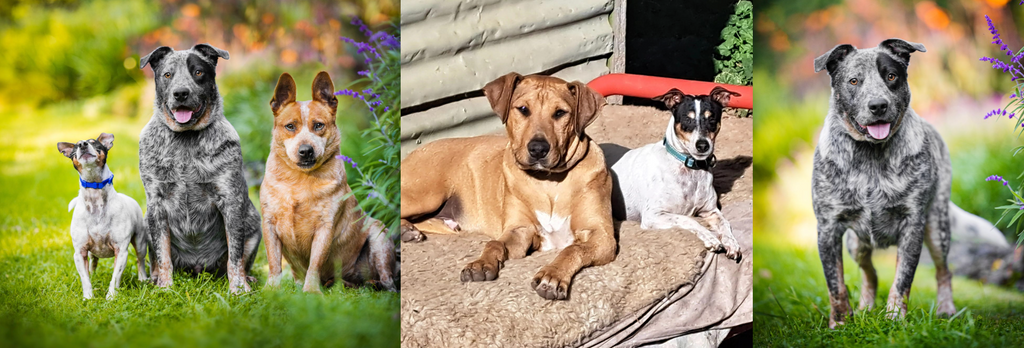
Understanding Chicken Allergies in Dogs: Causes and Solutions
Food allergies in dogs can manifest in various ways, and chicken is a common allergen that affects many canines.
If your furry friend exhibits symptoms such as itching, gastrointestinal issues, or skin irritations after consuming chicken, it may be a sign of a chicken allergy. In this article, we will explore why some dogs are allergic to chicken and provide insights into managing this common food sensitivity.

P.S if your dog is allergic to chicken we have lots of chicken free air dried and freeze dried dog food options here (we use turkey not chicken).

- Protein Sensitivity and Allergic Reactions
Chicken allergies in dogs are often related to an immune system response triggered by specific proteins found in chicken meat.
The immune system recognizes these proteins as foreign substances and mounts an allergic reaction to protect the body. The most common protein responsible for chicken allergies is called albumin, although other proteins like ovomucoid can also trigger an allergic response.
- Overexposure and Sensitization
Some dogs may develop an allergy to chicken due to overexposure or repeated consumption. Feeding your dog the same protein source, such as chicken, for an extended period can sensitize their immune system to that particular protein.
Over time, the immune system may perceive the protein as a threat, leading to an allergic reaction upon ingestion.
- Digestive Issues and Gastrointestinal Distress
Dogs with chicken allergies may experience various digestive issues, including vomiting, diarrhea, and excessive gas. These symptoms occur as a result of the allergic response triggered by the chicken protein.
The digestive system reacts negatively, leading to gastrointestinal distress and discomfort for your furry companion.
- Skin and Coat Problems
Skin-related issues are common manifestations of chicken allergies in dogs. Symptoms may include itching, redness, rashes, hives, and hot spots. Dogs may scratch excessively, leading to hair loss and skin infections.
The allergic response to chicken can also affect the quality of their coat, making it dry, dull, and prone to shedding.
- Managing Chicken Allergies in Dogs
a. Elimination Diet: If you suspect your dog has a chicken allergy, consult with your veterinarian about conducting an elimination diet.
This involves removing chicken and all chicken-based products from their diet for a period of time to observe any improvement in symptoms. Alternative protein sources, such as lamb, fish, or turkey, can be introduced to provide balanced nutrition.
b. Reading Labels: When selecting commercial dog food, carefully read the ingredient labels to ensure chicken or any chicken by-products are not present. Opt for hypoallergenic or limited ingredient diets that specifically avoid chicken and focus on alternative protein sources.
c. Home-Cooked Meals: Prepare homemade meals using protein sources that do not trigger allergic reactions in your dog. You can see our recipes here and the sensitive dog book would be a great one to check out
d. Allergy Testing: In severe cases or when an elimination diet does not provide conclusive results, allergy testing may be recommended. These tests can identify specific allergens and help guide you in selecting appropriate dietary choices for your dog.
Conclusion
Chicken allergies in dogs can cause discomfort and affect their overall well-being. Understanding the causes and symptoms of chicken allergies is essential in managing and providing relief for your furry friend.
By implementing an elimination diet, carefully reading labels, considering home-cooked meals, and consulting with your veterinarian, you can effectively address your dog's chicken allergy and provide them with a balanced, allergen-free diet to support their health and happiness.
P.S if your dog is allergic to chicken we have lots of chicken free air dried and freeze dried dog food options here (we use turkey not chicken).




